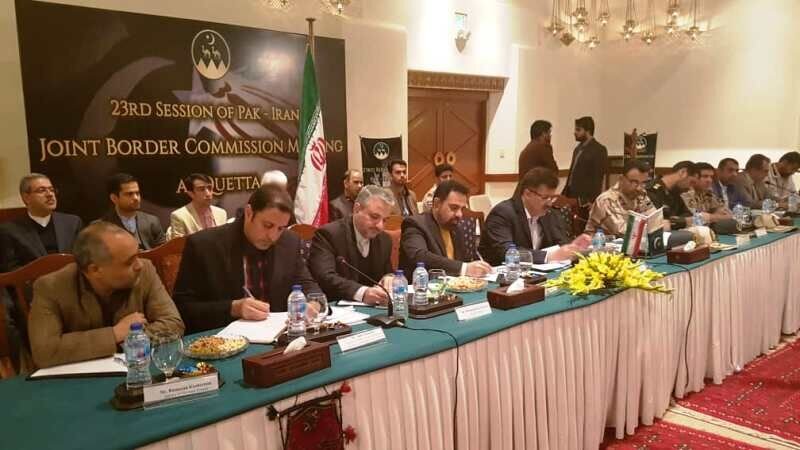Iran, Pakistan hold joint border meeting

TEHRAN - The 23rd border meeting of Iran and Pakistan kicked off in Quetta in the Pakistani province of Baluchistan on Wednesday.
Mohammad Hadi Marashi, the deputy governor of Iran’s Sistan-Baluchestan province for security affairs, leads the Iranian delegation. The Pakistani delegation is also chaired by Feizl Asqar, Baluchistan province’s secretary general.
The Iranian and Pakistan officials, who have attended the three-day meeting, are to exchange views over various issues, including expansion of trade ties, restoration of sustainable security to the common borders, joint campaign against terrorism, countering illegal crossing at borders, and anti-drug trafficking cooperation.
The 20th version of the meeting was held in the port city of Chabahar, the 21st in the Pakistani port city of Gwadar, and the 22nd one in Zahedan in southeastern Iran.
Earlier this month, in a meeting in Islamabad, Iran’s Navy chief and his Pakistani counterpart discussed new avenues to expand naval cooperation.
The report was released by Rear Admiral Mohammad Arshid Javed, the spokesman for the Pakistani Navy.
It said Iranian Navy Commander Rear Admiral Hossein Khanzadi and Vice Admiral Admiral Zafar Mahmood Abbasi, who is currently serving as the chief of the Naval Staff of Pakistan’s Navy, vowed to bolster cooperation between their forces.
“The Iranian and Pakistani Navy commanders reviewed mutual existing cooperation and exchanged views over other intended issues,” the report added.
In March 2019, the Supreme Leader's top aide for international affairs Ali Akbar Velayati told Pakistan’s Railways Minister Sheikh Rasheed Ahmad that Saudi Arabia and Israel were arming anti-Iran terrorist groups inside Pakistan, urging Islamabad to prevent third parties from destroying the two neighbors’ ties.
The Pakistani government should not allow other countries “like Saudi Arabia and the Zionists” to undermine Tehran-Islamabad ties and foment crises along the common border, Velayati said during the meeting with Ahmad.
He said the terrorist groups that recently killed a number of Islamic Revolution Guard Corps (IRGC) forces in Sistan-Baluchistan receive arms and money from Saudi Arabia and Israel.
MJ/PA
Leave a Comment